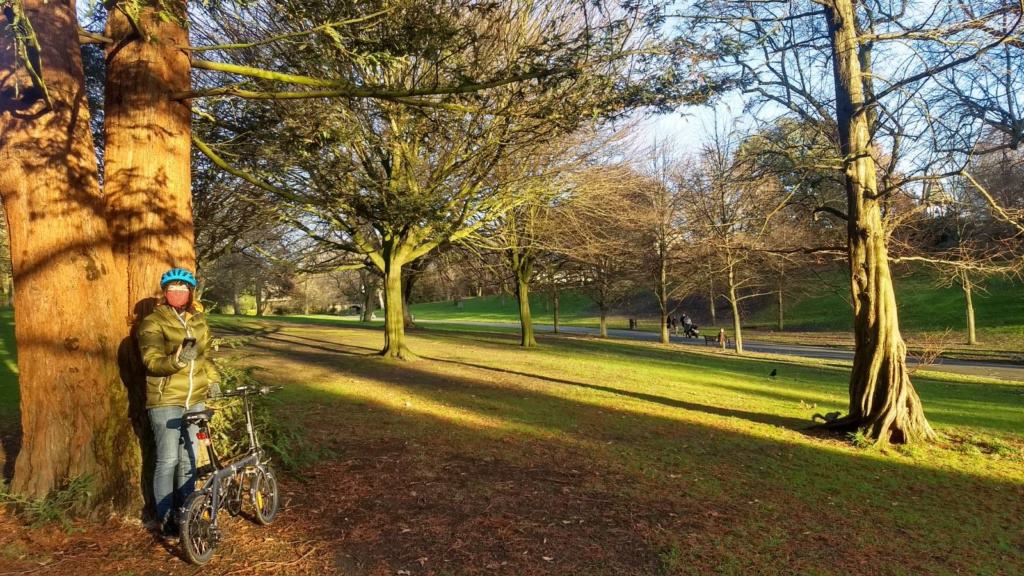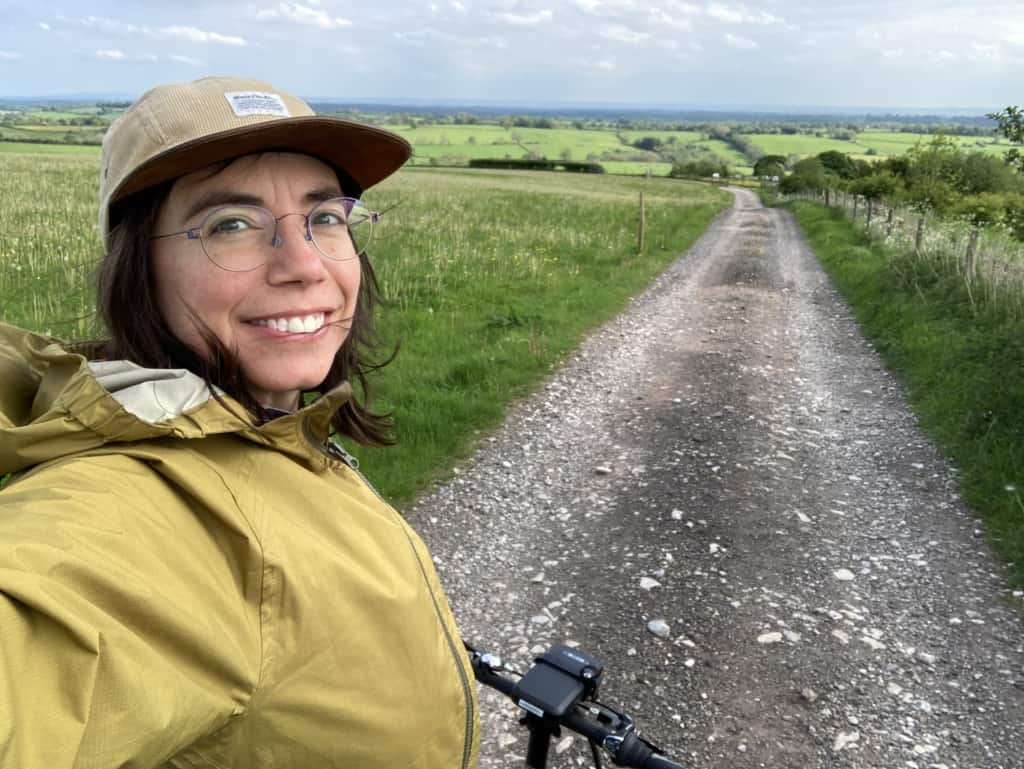
In this blog Janet tells us in her own words about her journey to seeing herself as a Disabled cyclist and her e-bike as a mobility aid.
“Since I can remember I’ve loved cycling. But I only recently became a Disabled cyclist.”
“I am one of those people who has an invisible Disability. And it took me over a year to really understand my Long Covid and ME as a Disability. For the past two years, I’ve had a number of symptoms that come and go, but the main one that impacts my life is an energy impairment. The word “fatigue” simply does not do this justice.
“Others have described this as comparable to starting the day with 20% left on your mobile battery, never more. Everything you do has to be planned carefully so your battery does not die, especially if you are not at home. (Compared to many others I am lucky to have 20%. Many never get “charged” more than 5% and can’t even really leave bed.)”
“But with my 20%, no car, and fear of getting re-infected with Covid on public transport, life is still a real challenge. Without my electric bike, I would be limited to a small walking radius around my house.”
“When I got my folding e-bike after six months of illness and impaired energy, my world opened up. I find it much easier to pedal slowly with electric assist than to walk. On a good day, my range increased to a couple of miles, which allows me to go into the city centre, meet friends and family outdoors, go to the allotment or to the pharmacy, and ride to the river where I can see the bullrushes. I’ve even been on a climate march with my bike.”
“I particularly struggle to walk up hills, the small incline near my house feels like Everest. And this Everest stands between me and my local park. My e-bike helps me get up the hill with ease, so I can visit the park even on a low-energy day.”
“More than once, despite my best efforts to plan and ration my energy, I’ve been caught out with failing energy away from home. It’s literally like being on 2% of a mobile battery. Plug in or it will shut off. When this happens, I need to rest and I simply cannot walk any distance. It’s genuinely the most dread-inspiring feeling, not to know how or when I can get to comfort and safety.”
“Before, I would be dependent on cab companies, some who refuse to respect I do not want to be re-infected with Covid and wear masks.”
“Now, if I’m close enough to home, my partner can leave me seated (or reclined) somewhere, go home and get my e-bike. Once I have rested, I can make it home on the bike.”
“And with the cab companies we trust, we can put my bike in the boot, which allows me to increase my range even further.”
“One thing I’ve noticed is that most people don’t really consider that a bike can be a mobility aid. This is probably because of preconceived notions people have about Disability and who a Disabled person is. I have to explain my energy impairment and explain that the bike helps me lead a better life.”
“Because it’s small and cute, I often joke that my bike is my “support animal”. In a way, I’m making an excuse for why I need my bike with me as much as possible, and for why I don’t always dismount where others might expect me to.”
“Those who use bikes as mobility aids shouldn’t have to beg for forgiveness or make excuses or jokes. Or in a worst case scenario be criminalised. I love the campaign #MyBikeMyMobilityAid because it has very clear, practical asks in terms of both changing legislation and changing attitudes. The solution to this problem is all set out, quite simply.”
“I’m not alone as a new Disabled cyclist. Long Covid is a mass-disabling event. According to the ONS, 1.8m people in the UK have Long Covid, and 44% have had it for more than a year. “Fatigue” is the most commonly reported symptom, with 51% reporting. On my Long Covid support group, there are many people who have bought electric bikes to help them just like I have.”
“There are potentially hundreds of thousands of people newly Disabled by Covid, using bikes as mobility aids. The struggle for diagnosis and treatment is already enough. We shouldn’t be struggling to use our bikes in public.”
WfW couldn’t agree more: no-one should have their mobility reduced or their mobility aid refused just because it is a cycle. You can find out more information about #MyCycleMyMobilityAid and our most recent MCMMA campaign briefing on our website. And please get in touch if you have a story that you would like to share.

